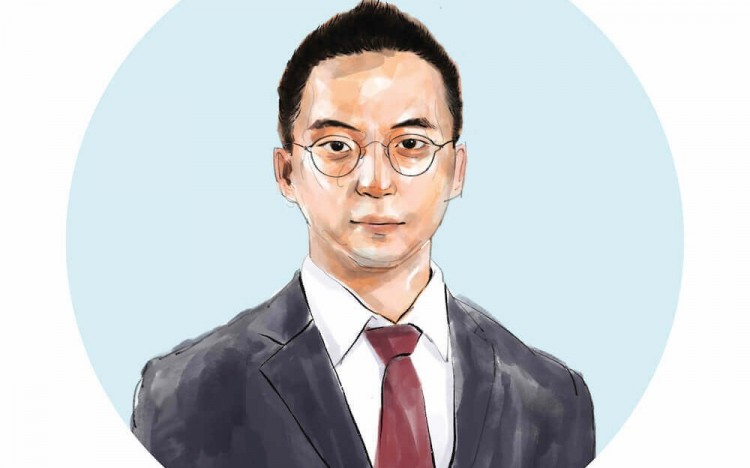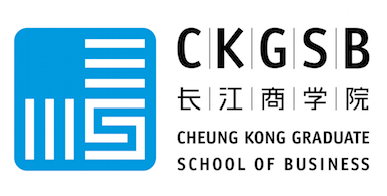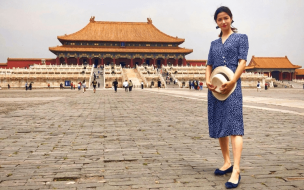Changmin Shin was bored of his small countryside town and wanted to get out.
Born in Gimhae in southern South Korea in 1984, his ambition for more opportunities led him to leave his childhood home and travel 190 miles north to the bright lights of Seoul, the Korean capital, for university.
That same ambition led Changmin to join the Korean Navy, travel, and see the world. And that same ambition would take him to China, and a full-time MBA at CKGSB.
Early in his journey, quite unexpectedly, his passion for business started to take shape.
Theater club
When Changmin left Gimhae to study naval engineering at Seoul National University, it was partly to appease his parents, but mainly because it was the furthest he could get away from home. Back then, before the bullet train, travelling north to Seoul would take at least six hours.
Free in Seoul, living away from his family for the first time, Changmin enjoyed the social side of life. He joined an inter-university theater club which ran regular workshops and hired local theaters to put on week-long amateur productions.
The club relied almost entirely on external funds—students would tour Seoul’s nightlife hotspots, knocking on the doors of bars and clubs to try and get small timeslots to perform and raise money.
Changmin opted for a different approach. He looked for sponsorship by targeting big local companies, and designed an official theater group t-shirt, of which he printed and sold hundreds.
Almost by accident, through his involvement in the theater club, Changmin took his first foray into business.
“I didn’t tell my parents about it at the time!” he laughs. “In Korea, you have three choices—become a lawyer, a doctor, or an engineer,” he explains. “What we’re told to do by our parents is study, study, study, nothing else—my parents were no exception.
“I was a troublesome kid, because I wanted to see what I hadn’t seen. My world was so small and I wasn’t happy with it. Then, at university, I spent most of my time outside the library enjoying myself—and that’s when I found my real interest.”
Naval academy
After university, Changmin went into compulsory military service with the Korean Navy’s officer corps. Naval academy was tough, but officers were treated better than privates—they had their own beds for a start.
Aged 23, Changmin was charged with a project management part in the biggest IT project in Korea at the time—a two-year, six-phase project to develop an IT assessment model for new weapon systems. The project was a success and, again, Changmin gained more experience on the business management side.
“One of the best decisions I’ve made in my life was to join the Navy,” he says. “The sons of very influential people become Navy or Airforce officers in Korea—it’s a very good network.”
“But the Navy is a completely top-down structure—it takes many years to progress. So, I started working on my GMAT. I was interested in business, and I thought at some point in my career I should do an MBA.”
At the time, Changmin was considering taking a more traditional route, looking at business schools in Europe and North America. But around 2012, after working as a project manager in shipbuilding for a few years, the industry in Korea started to decline and all Changmin heard at home was that China would take over.
Up to that point, Changmin hadn’t thought much about China. In pre-school, he’d read books about how the ‘heroes of the liberal world’ defeated the communists, about the wars in Korea and Vietnam.
When he was eight years old, in 1992, China and South Korea restored diplomatic relations. “For the first time, I realized that there were real people living there,” he says. 20 years on, China increasingly seemed like the place to go.
Management
Just months into his MBA, Changmin’s decision to take the leap and go to business school in China paid off when he was headhunted for a job at Hilti Group, a multinational manufacturing firm, in Seoul.
The company was after a very specific profile—those with an MBA of international experience who’d graduated from Seoul National University. After four interviews over four months, Changmin beat off the competition and became the first student in his class to land a post-MBA job. He started his new job in July 2015; he didn’t graduate until December.
Now, he’s in a global leadership role, responsible for offshore shipbuilding activities across Asia. He lives in a studio flat on the outskirts of Seoul, 40 minutes from the airport.
He travels to Japan and Singapore, and he spends six weeks a year in China. When he says he’s from CKGSB, it’s easier to do business with top-level Chinese.
“My job description says I’ll spend 40% of my time travelling internationally, but I think I’m doing even more than that,” he says.
“It’s physically challenging and demanding work—flying around, meeting customers and going back to the hotel to work again. But it’s much better than being in an office!”
Changmin is in his element—doing business, travelling, seeing the world, never in one place for more than a few weeks at a time.
But his business trajectory is not yet complete—he has his eye on managing director and CEO roles in the near future. It’s a far cry from small-town life in Korea’s industrial south—and the CKGSB MBA is helping him along the way.
“The corporate finance and economics courses, the managerial knowledge, the China knowledge, and the cultural experience I gained at CKGSB,” he says, “I refer back to that every day.”








